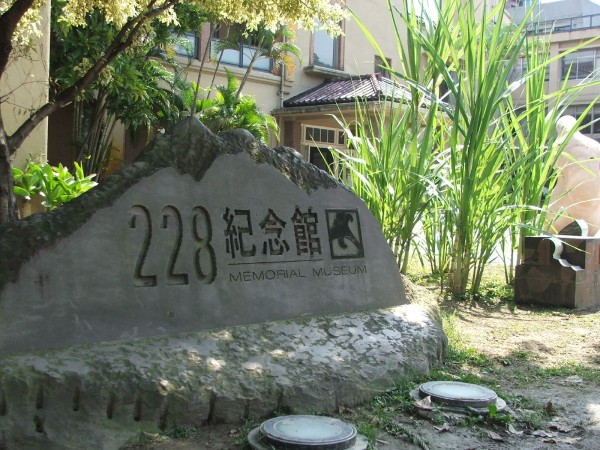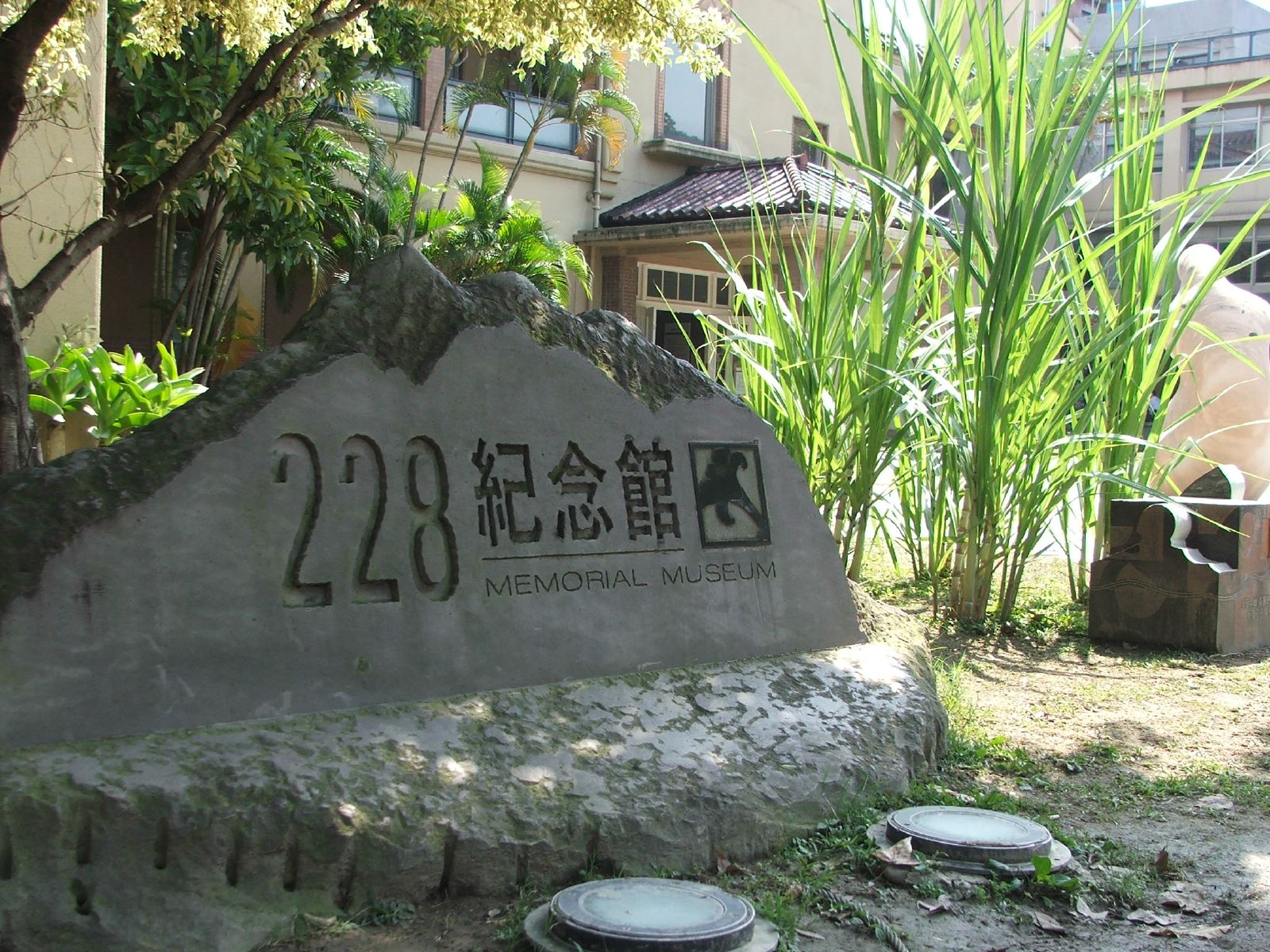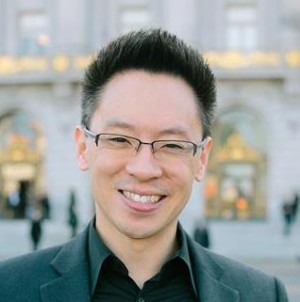This piece was written for the youth participants and alumni of the Taiwanese American Foundation (TAF), the oldest summer conference serving people of Taiwanese heritage. It was originally published at the TAF website and has been republished here with permission.

photo credit: davidreid via photopin cc
By Ho Chie Tsai
The first time I listened to a presentation about the 228 Incident, one of Taiwan’s most tragic and defining moments in history, my only memory was that I chuckled and giggled alongside my group of friends during a moment when the speaker passionately proclaimed in his accented-English that this was the Taiwanese “holocaust.” It was August of 1986, and I was 14 years old–a “freshman” at TAF.
I was young, and I didn’t know better. It wasn’t that I thought the turn-of-events being recounted was something to be laughed it. On the contrary, the audience was rather solemn, maybe even slightly bored. But that microphone-enhanced proclamation of “holocaust” simply refocused everyone’s attention… in a humorous and unintended way. Even though the speaker’s imperfect accented English reminded me of my parents’ own, that teenage version of me wasn’t that forgiving. And so yes, I laughed. In fact, looking back, I realize now that I knew very little about my heritage and our people’s history. I certainly didn’t have much pride in my identity as a Taiwanese American, and it manifested as silly behaviors of a teenager.
During the TAF camp of the 80′s, our Monday afternoon schedule included a “Taiwan Culture” session. It was an attempt to help our young emerging 2nd generation audience, of which I was a part of, to be more knowledgeable about our parents’ experiences and the issues that they cared about. Our invited program speaker was usually a 1st generation immigrant parent. There really wasn’t much choice; we didn’t have many 2nd generation speakers that we could relate to and who were knowledgeable about Taiwanese history and politics topics. As passionate as the 1st generation parents were about teaching us history, though, perhaps we weren’t all that interested since we were doing what most high school students typically do–trying to be “cool” and to find acceptance wherever we could. It didn’t involve knowing the details of some history of a “foreign” country that my parents left.
Over time, I’ve come to realize how wrong I was, and how insecure my identity was at that time. I didn’t know how much I needed to be at this “Taiwanese camp” that my parents forced me to attend. However, the full week’s experience and the people I met changed me. I made friends who struggled with similar issues of identity and teenage angst. I was inspired to be like the dedicated counselors and advisors that lifted me up every day. I discovered a foundation of self-pride and acceptance like I had never known before. After that week, I longed to know more about my heritage and my parents’ stories. I wanted to know what it meant to be Taiwanese American.
And I wished I could go back to the early part of that week and listen more closely to the history that was being taught. But with more respect and attention.
Although it took me well over a decade to fully learn and understand the interpretations, nuances, and sensitivities surrounding Taiwan’s complicated history and turn-of-events, I continue to have such an appreciation for its evolving story. And each year now, I remember 228 – short for February 28, 1947, the date which marked the massacre of an estimated 20,000 Taiwanese and the imprisonment of approximately 140,000 more who were suspected of opposing the newly established Nationalist KMT’s Republic of China government. It would also mark the beginning of the “White Terror” martial law era and foreshadow the mass migration of 2 million people fleeing China to Taiwan after losing their Civil War to the Communists in 1949.
Before my years at TAF, as a pre-teen, I would hear my parents and their friends whisper “Remember 228, the Taiwanese holocaust.” At the time, I was too young and naïve to know why I should care, or why they seemed so cautious speaking aloud about it. During the early 1980’s, around the time TAF was founded, Taiwan was still officially under a period of martial law and, and it was still taboo to talk about the stories of “228”, the dreams about democracy, and other themes that hinted at “Taiwan independence.” My parents, who were young immigrants to America, would quietly discuss these experiences with their close friends within the Taiwanese American community, but they wouldn’t share much detail with us kids, even though we would attend community events that clearly brought together Taiwanese activists and democracy supporters. In fact, most if not all of the founders of TAF fit this demographic or could at least claim friends and family members who were.
As I reflect back on my youth, I now know why they didn’t actively encourage us to become activists too. In their own way, they wanted to protect us and shield us from this history of oppression and tragic stories. After all, it was their friends, family members, neighborhood acquaintances who were jailed or killed for speaking out against the old guard Kuomintang government and the atrocities they were responsible for during that time. It was they who were blacklisted from returning to their homeland during this martial law era.
But they hoped for a better future for us, the 2nd generation. And they sent us off to camp so we could hang on to our roots and connect with other Midwestern Taiwanese American kids just like ourselves. And it was there, where we would begin to learn and piece together the untold stories of our history.
Years later, as I matured through the TAF programs and leadership opportunities, I took it upon myself to know more about Taiwan’s history. I looked forward to the Taiwan Culture programs that TAF offered. Later on, during my college years, my fellow TAFers and our extended network of Taiwanese American friends would organize the first clubs and conferences which would become the foundation of the present-day Intercollegiate Taiwanese American Students Association. Over time, I would begin to understand the implications of 228 and its impact on our Taiwanese community and worldwide diaspora. Many of my peers and I would become activists and organizers in our own Taiwanese and Asian American communities pursuing issues that were relevant to the Asian Pacific Islander community in America. The themes of justice, freedom of speech, equality–essential pillars within a democracy–resonated with us in the work we did. It was our coming-of-age, but now we understood that what our parents’ and grandparents’ generation endured and rose up against was incomparable.
Today, Taiwan is a multicultural and open society where its citizens live and work peacefully with each other. Yes, politics can often be divisive in Taiwan and people are opinionated when it comes to sensitive and often polarizing issues. However, I believe this free discourse will prove its worth one day as history plays out and continues to forge something great for this de-facto independent nation. So, remember 228 and forgive the sins of the past? To move forward, I say we must. In the same breath, I also say we should never forget this cornerstone of Taiwan’s path towards democratization and the tens of thousands of innocents who lost their lives in the struggle. That’s the least we can do to honor our history and our heritage.
I am so proud of being a TAFer. I’m grateful for the knowledge and the confidence it instilled in me through all the years I’ve been there. I’m indebted to the ideals of servant leadership that its counselors and staff continue to teach–those principles of leadership are ones I now hold proudly as my own. TAF has been the single most influential experience to have shaped my proud identity as a Taiwanese American.
I imagine if I could go back in time and tell that 14 year old me one thing, it would be this: Appreciate the storytellers of history and the perspectives they share. Listen more. Judge less. Love yourself and the people around you without fear. The future will hold great promise if we can all be more respectful and work together to lift each other in higher regard.
As we move forward, I have high hopes that you, my fellow TAFers, and I will continue to gain a greater understanding of ourselves and our family histories. And on this February 28, also known as Peace Memorial Day in Taiwan, we remember the past sacrifices and suffering, but appreciate how far we’ve come as a community and as a people. We continue to become the best possible versions of us that we can be, and we take our ethics & values, our leadership skills, along with our proud Taiwanese American identity, and we proactively contribute our gifts to the world. This is how we continue to make a profound impact on mankind in unique and compassionate ways.
For a brief background on 228, click here to read more.
ABOUT THE AUTHOR: Ho Chie Tsai is a TAF Board Member and the founder of TaiwaneseAmerican.org — a website highlighting the amazing Taiwanese American people, organizations, and events nationwide. He is a frequent speaker at Taiwanese American and Asian American conferences. A long time ago, he helped to co-found the TAF Juniors Program in 1991. He is currently a pediatrician living in the San Francisco Bay area.









